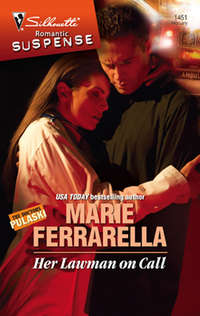
Полная версия
Romancing The Teacher
“It might sound more convincing if you didn’t act as if your mouth were filled with unappetizing dirt when you said it.”
“As opposed to the appetizing kind?” she guessed.
Ian laughed. She’d gotten him. Words were his stock and trade, but of late, in the last nine months, it felt as if he’d just closed up shop. Nothing was coming. No ideas, no snippets of plots, no stray dialogue flashing through his brain at odd moments, begging to be written down before they were forgotten. It was as if his fictional world, the world he often sought out for solace and in which he often took refuge, had completely deserted him, leaving him to fend for himself and deal with what was around him without the crutch he had come to rely on so heavily.
This with a deadline breathing down his neck.
For now, he smiled, his eyes on hers. “I stand corrected,” he allowed.
He looked over Lisa’s head at the woman he had checked in with when he’d first walked through the doors. He couldn’t help wondering if she was very shrewd or very vacant. Her expression could be read either way.
“Has anyone thought about setting up a few informal classes to teach the kids while they’re staying here? If most of them are transient, then enrolling in the local schools doesn’t sound like anything their parents are going to be looking into. Whole chunks of these kids’ educations are falling through the cracks and nobody’s noticing.”
Lisa looked at him, surprised by the observation. Was he actually deeper than that brilliantly blinding smile of his? “You sound like you’ve given this matter some thought.” She studied him for a moment, looking to be swayed one way or the other about him. “Like you’re familiar with it.”
The shrug was careless, tying him to nothing. “In a manner of speaking.”
Given the glimmer of a hint, Lisa wasn’t about to back off easily. “What manner of speaking?”
“Mine,” he replied.
The single word just hung there, suspended in space. Ian didn’t feel like sharing anymore, didn’t feel like telling this woman or her superior that he’d once been one of those kids who’d had sections of his life carelessly lost in the shuffle because no one was looking out for him.
After his family had been killed in the Palm Springs earthquake, it had taken Social Services more than six months to locate his mother’s parents. His grandparents, Ed and Louise Humboldt, lived on a small operating farm in Northern California, close to the Oregon border. Estranged from their daughter because of her marriage to a man they didn’t feel was good enough for her, they had no idea that anything had happened to her or to her husband and daughter, until Alice McKay from the Orange Country Social Services office had taken it upon herself, on her own time, to locate his only living relatives.
They were little more than strangers to him when Alice brought him up to the farm. He hadn’t wanted to stay with them, had wanted instead to go home with Alice because she was kind and her smile reminded him of his sister’s. But that wasn’t possible. So he had remained with his grandparents, who took him in out of a sense of duty.
They fed him, clothed him and gave him a roof over his head. In exchange, he did chores on the farm before school, after school and practically until he dropped at night.
Ed and Louise were good people, they just weren’t good grandparents. He knew they didn’t love him. They didn’t concern themselves with his education other than his getting one. He thought of running away several times, but instead, he remained. And then, as he settled in, a funny thing happened.
A whole new world opened up for him whenever he was around books. A world where there was no weight on his shoulders, no pain waiting for him around every corner and no guilt ready to spring up at him without warning. He read everything he could get his hands on, especially science fiction.
When he wasn’t doing chores or studying for school, he was reading. Morning, noon and night.
Around the time when he turned fifteen, he discovered that he could not only read about those worlds that existed between the pages of a book, he could create them. Create worlds where things happened the way he wanted them to. He wasn’t a victim anymore. Instead, he became a god. A god who presided over invisible worlds that existed first only in his mind and then on paper as well.
He finished writing his first book at seventeen, fashioning a strange world where people were ruled by their nightmares. Twenty-seven publishers rejected it. And one made him an offer.
He was on his way.
None of it would have happened if Alice McKay hadn’t taken it upon herself to hunt down his mother’s parents. Because if she hadn’t, if she had been content to do her job and nothing more, he would have gone on being sent from one foster home to another, one school system to another and, because of his progressively rebellious nature, never remaining anywhere long enough to learn anything or find any peace.
He’d dedicated Nightmares to her, paying her the highest compliment that he could by making her the godmother of his firstborn.
“I think it’s a good idea,” Muriel decided, after thinking about the idea of classes for a moment. Her eyes shifted back and forth between the two of them, finally resting on Lisa. “Why don’t the two of you see what can be worked out?”
Lisa frowned. She didn’t want to be pulled into this. Redeeming idea or not, she didn’t like the thought of working too closely with Malone. One altruistic moment did not a saint make.
“It’s his idea,” she protested, looking at Muriel pointedly.
The expression on Muriel’s face was mild. But once she’d made up her mind, nothing could dissuade it. “Yes, but you’re the teacher,” she reminded her.
That shouldn’t be held against her, Lisa thought, irritated.
Ian looked at her with mild surprise. “You’re a teacher?”
Lisa unconsciously squared her shoulders. “Yes.” She braced herself for some sort of crack. She wasn’t disappointed.
His mouth curved slowly, lazily. Wickedly. “No wonder I kept having the strange sensation of having my knuckles rapped.”
“Very funny.” She looked at him pointedly and decided—again—that she didn’t like his attitude. “If I were to rap something, it wouldn’t be your knuckles.”
He didn’t back off. She hadn’t thought he would. “Tell me more, this is getting to sound interesting.”
Lisa caught herself growing angrier without being entirely sure why. “Is everything a joke to you?”
“If you don’t laugh, you cry,” he told her with more solemnity than she thought possible.
And then that engaging grin of his took over, turning everything in its path to jelly. Or worse.
He glanced over her head through the window and his expression changed. It made her think of a prisoner who had just seen his parole papers placed on the warden’s desk. “Looks like my ride’s here.”
“Your ride?” she echoed, turning around to see for herself. She saw a light-blue Corvette pull up right before the front steps.
He nodded, rolling down his sleeves and buttoning them at his wrist.
“The state of California doesn’t want me driving around right now. Something about people not being safe on the streets. See you, Kitty. We’ll talk more next time.” And then he winked at her just before he left the premises.
She tried not to notice that something in her stomach fluttered in response.
Chapter Four
“I know, I know,” Lisa called out even before she made it across the threshold, her key still in the lock. Removing the key and closing the door behind her, she dropped her purse beneath the coatrack and kicked off her shoes, an indication that she was officially home. “I’m late. Sorry.”
The words were addressed to her mother who she knew would be somewhere within the vicinity of the front door. Widowed, Susan Kittridge had moved in with her just after a bullet to the hip had terminated her career with the Bedford police force. Unable to remain on the sidelines, her mother had gotten a job with a nationwide security firm, taking the evening shift so that there would always be someone home for Casey.
Lisa flashed her mother an apologetic look. She knew that the woman was due at work soon.
Without missing a beat, Susan crossed to the entrance and picked up both the purse and the shoes. Depositing them in the hall closet, her mother feigned innocence.
“I didn’t say anything.” Susan closed the closet door firmly.
Lisa gave her mother a knowing look. “But you were thinking it.”
Susan laughed softly, shaking her head. “My daughter, the mind reader.” Because she didn’t really have to leave for another twenty minutes, Susan paused and gave herself a few minutes just to talk. Conversations were rare between them lately. Words were tossed around on the fly as Lisa hurried off in the morning and she at night. “You know, the FBI probably has a great opening for someone with your talent.”
Maybe she was feeling edgy, but she took her mother’s words as a criticism. She was in no mood to defend herself or get into a verbal battle. “It’s been a long day, Mom.”
“And this makes it different—how?”
About to retort, Lisa stopped herself. There was no reason to take offense. She knew her mother hadn’t intended her question that way. She was just being testy. It was all Malone’s fault, she thought. From start to finish.
“You’re right. But the shelter got saddled with one of these community service people this afternoon…”
Which meant that she got saddled with him, Lisa thought grudgingly, her voice trailing off. After all, Muriel could only do so much and since the funds had been cut, there was no money for a full-time assistant. The powers that be expected Muriel to do it all, or to depend on volunteers and court-ordered penitents doing atoning servitude.
Like Malone.
Ordinarily, she wouldn’t even give the community service people a second thought. But Malone had not only gotten a second thought from her, but a third and fourth one as well. The very fact that he kept preying on her mind bothered her more than she could say.
Susan waited. When her daughter didn’t say anything further, she coaxed, “Yes?”
Lisa shrugged. “There’s just something so irritating about him.”
Susan smiled and shook her head. She knew that Lisa sometimes grew impatient with people who weren’t as dedicated as she was. She was like that about teaching as well. As much as she loved her daughter sometimes, Lisa took herself too seriously. “You just have to remember that not everyone is as holy as you are.”
About to go upstairs to check on her son, Lisa stopped dead and swung around to look at her mother. That made it sound as if she looked down her nose at everyone and that just wasn’t true. “Mom!”
“Well, you try to be,” Susan replied matter-of-factly. There was affection in her eyes, as well as concern. “I’m still trying to figure out what you’re trying to prove, but then, I was never very good at puzzling things like that out. Probably why I never made detective,” she added philosophically.
“You didn’t make detective because you never studied for the exam. You liked being out on the street too much,” Lisa reminded her, then added with a touch of indignation, “And I’m not trying to prove anything—”
Now here they had a difference of opinion and of the two of them, Susan thought, she was the one who had the clearer picture.
“Other than the fact that you’re superwoman disguised as the not-so-mild-mannered Lisa Kittridge?” Before Lisa could protest, Susan cited the positions on her daughter’s unwritten résumé. “Super-mother, super-teacher, super-volunteer. On the daughter front,” Susan held out her hand and waffled it a little from side to side, “not so much, but as for the rest of it—”
Lisa sighed, running a hand through her straight black hair. She supposed her mother had a point. She was an overachiever. But then, she always had been.
“So I’m enthusiastic. Is it so wrong to be enthusiastic?”
There was enthusiasm and then there was compulsion. Susan worried that her daughter was leaning toward the latter. She had been ever since Matt had been killed by that drunk driver. “24–7? Yes, it’s wrong. Baby, you’re burning the candle at both ends.”
Susan saw a familiar look slip over Lisa’s face. The look that said her stubborn daughter was shutting down. And that no trespassers were welcomed. “My candle, Mother.”
“Yes,” Susan agreed. “And Casey’s,” she reminded her quietly.
At the mention of her son’s name, Lisa’s eyes widened. “Casey. Omigod, Casey.” For a moment, she’d forgotten all about him. A wave of guilt washed over her. “Was he very upset when he found out I wasn’t going to be home in time to read his story to him before he went to bed?”
Susan allowed herself a smile as she shook her head. “No.”
That didn’t sound like her Casey, Lisa thought. Was he coming down with something? “No?”
“No,” Susan repeated. “Because Casey didn’t go to bed.”
“He didn’t?” Lisa didn’t finish as she looked over her shoulder and up the stairs. It was almost eight o’clock. Casey has a seven o’clock bedtime. Occasionally, seven-thirty. “He’s still up?”
Susan nodded. She went to the hall closet and retrieved her purse, which looked like a smaller version of a knapsack but served her purpose well. “In his room, waiting for you to tell him what happened to the Indian in the Cupboard.”
Lisa sighed. That was the title of the book they were currently reading each night. Her son could be very willful when he wanted to be. But she’d thought that her mother could deal with that, given the strength of her personality. Obviously she hadn’t factored in the grandmother-pushover component. “Mom, why didn’t you get him into bed?”
“Oh, he’s in bed all right.” Susan passed the strap over her head and onto the opposite shoulder, messenger fashion. “Sleeping is another matter. He’s his mother’s son,” Susan told her daughter pointedly. “As I recall, I could never make you do anything you didn’t want to do even at that young, tender age, either.”
Lisa didn’t bother wasting any more time discussing who was the adult here. Besides, her mother had to leave for work. And she had one young man to put in his place. Taking the stairs two at a time, she raced up to the small bedroom that was opposite hers.
The door to her son’s room was ajar and she looked in. Casey was sitting in bed, propped up by the three extra pillows that were up against his headboard. His eyelids were drooping but they flew open immediately as the door opened.
When he saw his mother, a smile flashed across his lips, gone the next moment as he struggled to be a miniature adult instead of a five-year-old.
“You’re late,” he told her in a voice that sounded way too old to please her.
“Yes, I know, and I’m sorry.” Crossing to his bed, she turned the lights down a notch, bringing shadows out from the backyard and casting them onto the ceiling. “Couldn’t be helped.”
“How come you always help all those kids but you forget about me?”
Sitting down on the bed beside her son, Lisa slipped her arm around his shoulders and kissed the top of his head. Casey’s hair was straight and the color of newly minted gold. Like his father’s had been, she recalled. But Casey’s smile, his eyes, his manner, they all belonged to her side of the family. To her.
“I don’t forget about you,” she insisted in a voice filled with love and patience. “It’s just that those kids have nobody and you have me, you have G-Mama, you have Uncle Frank. You have lots of people who love you very much,” she emphasized. “The kids I see have next to nothing and no one.” She went on stroking Casey’s hair. The soft, silky feel was soothing. “I met a little girl today. She’s around your age. And she can’t read.”
“Can’t read?” her son echoed, his eyes widening. “What’s wrong with her?”
“Nothing’s wrong with her,” Lisa replied. In the distance, she heard the front door close. Her mother had left for the night. Now it was just Casey and her. “Nobody ever took the time to teach her.”
Casey screwed up his face, trying hard to understand. “Doesn’t she go to school?”
Everything was so simple at Casey’s age. She wished she could keep him this way forever, protect him from a world where disappointments outnumbered triumphs, at times by frightening numbers. But in the long run, she knew it would be doing him a disservice.
So instead, she tightened her arm around him just for a second, loving him as much as she could. “She’s homeless, honey. Homeless kids don’t always get to go to school like you do.”
He nodded, accepting his mother’s word. “Are you going to teach her to read, Mommy?”
“Maybe.” If Monica wasn’t gone by the next time she stopped by the shelter, she added silently.
Before she could say anything else, Casey scrambled out of bed. “Hey, where are you going, cowboy?”
Instead of answering, Casey dropped to his knees in front of the long, double-tiered bookcase that ran along the opposite wall. After finding the book he was looking for, he pulled it free of the others and brought it back to her.
Casey was beaming when he handed the book to her.
Lisa read the title. “Marvin K. Mooney Will You Please Go Now?” Surprised, she looked down at her son. Casey was wiggling back into bed, pulling the covers up over himself. “This is the first book you ever read by yourself.”
She remembered how he kept asking her to read the popular Dr. Seuss story to him over and over again and how, the first time he read it out loud to her, she was certain he had just memorized the words. He was, after all, barely four. She’d been both surprised and pleased beyond words when he picked words out of context to prove to her that he actually could read the book.
Casey nodded. “It’s easy,” he told her matter-offactly. “Maybe you can teach her with this.”
Overwhelmed, Lisa blinked back tears as she hugged the little boy to her. “You really are a special, special boy, Casey.”
Casey tried to wiggle out of her grasp. “Mommy, you’re squishing me,” he protested, his voice muffled against her side.
“Sorry,” she laughed, releasing him. Setting the Dr. Seuss book aside for the moment, she looked at him. “Ready to find out what happened to our friend the indian?” Silken hair bobbed up and down as Casey nodded vigorously. “Okay then, let’s get to it.” She reached for the book that Casey kept on the nightstand, the official resting place for each storybook she read to him. “When we left off…” she began.
“So, how was it?” Marcus finally asked as he brought the sports car he’d bought for himself against Marjorie’s objections. At his age and success level, he felt he deserved at least one toy.
He’d picked Ian up at the shelter at the appointed time. His friend had gotten in without saying anything. Now several blocks had gone by and still nothing. Marcus didn’t know if Ian was lost in the revelry of creation, or in the depths of the black depression that on occasion overwhelmed him.
Because he cared about Ian, Marcus pushed rather than retreated, even though the latter would have been his natural inclination.
After a beat, Ian looked at him. The shrug was casual. “All right, I guess. Hell of a wake-up call, being among the have-nots again.” Ian laughed softly to himself. Even the words sounded as if they were meant for him alone and not the man beside him. “Wasn’t all that long ago I was there.”
“You worked your tail off not to be stuck at that level,” Marcus reminded him, thinking back to the lean and hungry days his friend had endured. Unlike him, Ian had not been born to money. “You pulled yourself up by sheer grit alone.”
Конец ознакомительного фрагмента.
Текст предоставлен ООО «ЛитРес».
Прочитайте эту книгу целиком, купив полную легальную версию на ЛитРес.
Безопасно оплатить книгу можно банковской картой Visa, MasterCard, Maestro, со счета мобильного телефона, с платежного терминала, в салоне МТС или Связной, через PayPal, WebMoney, Яндекс.Деньги, QIWI Кошелек, бонусными картами или другим удобным Вам способом.









